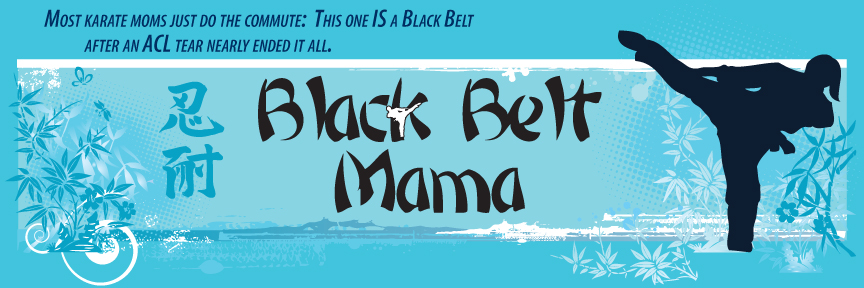January 3, 2010
Psy-ki-do: Predicate Matching for Rapport
Pat Parker here from Mokuren Dojo. Look at this! Black Belt Mama has so kindly agreed to let me post some of my crazy Psy-ki-do ideas on her most excellent blog. I have previously guest posted in this series on Dojo Rat's blog, on Marks' blog, and on Kris Wilder's blog. Also, Sensei Strange followed up with his own Psy-ki-do blog post.
Today's Psy-ki-do post is on teaching martial arts. I am a little hesitant posting about pedagogy on a professional teacher's blog, but as Dame Dorothy Sayers writes in the beginning of The Lost Tools of Leaning, you don't really have to be that informed to express an opinion.
Teaching in any domain, including martial arts, is about communication. In the domain of martial arts, you are trying to get your ideas about your skills out of your head and into someone else's head. But there's always some distortion between the teacher and the student.
- Often, the teacher has not completely mastered the skill, so his own understanding is incomplete.
- The student always filters what the teacher says through a set of presuppositions, creating an interpretation of what he thinks the teacher said.
- Often there are cultural or language barriers.
You can't really do anything about the first two points above. That's just the way the world works. But what about the third point – cultural and language barriers? It turns out that even when teacher and student come from the same culture and speak the same language, there can be language barriers.
Some really interesting pseudoscientific technobabble has come out in the last quarter of a century from the NLP folks. Despite having almost no shred of hard evidence to back them up, some of what they say is intuitively valid, as well as being potentially useful in the field of teaching and in the domain of martial arts.
If you check out the Wikipedia articles on NLP, you will see that much of what they say is based on this idea that different people favor different knowledge representation systems. What that means is that some people organize and store information in their minds visually, some auditorially (is that a word?), and some kinesthetically. Not really a ground-breaking or shocking theory. Mostly makes sense.
Well, it turns out that when speaking, people mostly choose their words unconsciously based on their internal knowledge representaitions, so when trying to communicate an idea, people tend to use words related to their own favored representation system. A classic example is the idea that a primarily-visual person might ask, "Can you see what I'm saying?" while a primarily-kinesthetic person might ask, "Can you feel it?" or "Do you understand me?" or "Do you get it?"
The NLP guys say that an attentive teacher can figure out, based on the student's word choice, what that student's favored representation system is. Then that teacher can match their own speech to that representation system to promote communication. In the example above, the teacher might determine that the student uses predominantly auditory words, and the teacher would deliberately ask, "Do you hear what I'm saying." The NLP guys call this "Predicate Matching for Rapport," and while this is an over-simplified presentation, this is the gist of it.
As I said above, this is pseudoscience, but if effective, it has great application in conflict as well as in pedagogy. Researchers often fail to demonstrate these effects, but the theory has an intuitively attractive feel to it (social validity). It feels aiki-like, the idea that by getting in synch with your student you can facilitate better communication.
Additionally, it's easy to learn to do, costs you nothing, and being more consciously attentive to your audiance just about never hurts the situaition, so here's the homework assignment:
Spend a day listening to people around you. Listen to see if they speak more often using seeing words, hearing words or feeling words. Do this for 2-3 days and then try deliberately using their favored choice of words instead of your own when you talk to them. Don't expect magical, hypnotic, Jedi powers, but watch to see if the tone of your conversation is different. I think you'll find this Psy-ki-do trick fun, interesting, and potentially useful in any teaching situation. Who knows, you might even get good enough at it that you could use it in a conflict.























Interesting. It almost sounds a little like what I do for several of my friends. I tend to call myself an English-to-English translator. I will literally listen to what one person is saying, in English, and repeat in my own words for the second person. For several sets of people I know, they will get what I am saying, even though they were completely confused by the original. I’m not entirely certain how I do it, or what I’m doing, but I suspect the ability is related to my results on a test of representation system, I came out pretty evenly on all kinds of thinking tested. I.e. I appear to be equally fluent in visual, auditory, and kinesthetic.
This is a wonderful article and smacks on exactly what I am studying and posting. One point, when the article gives examples I noticed that it tends to use sight and hearing. I have discovered that the much resisted sense of touch is still not consciously examined and used.
The largest disparity in the communications world is that reality gap of the touch dominant vs. the sight/hearing dominant. This is not to disparage the article and its value. It is similar to the societies pension to speak of colors as if everyone is able to see them thus the color blind or color deficient are also left to their own devices.
In the touch sense world it has far reaching effects that cause a great deal of pain and misunderstanding.
Thanks for this post to both BBM and to Patrick Parker Sensei.
Charles J.